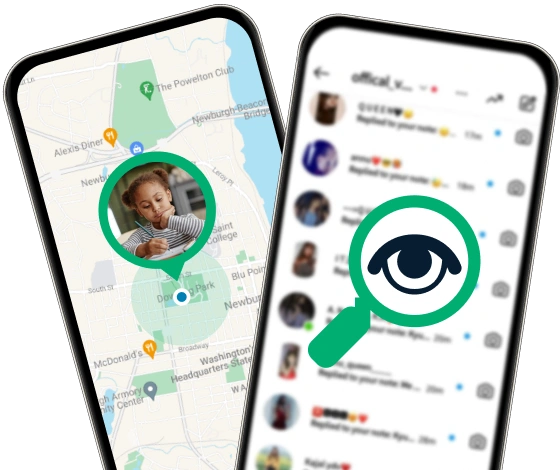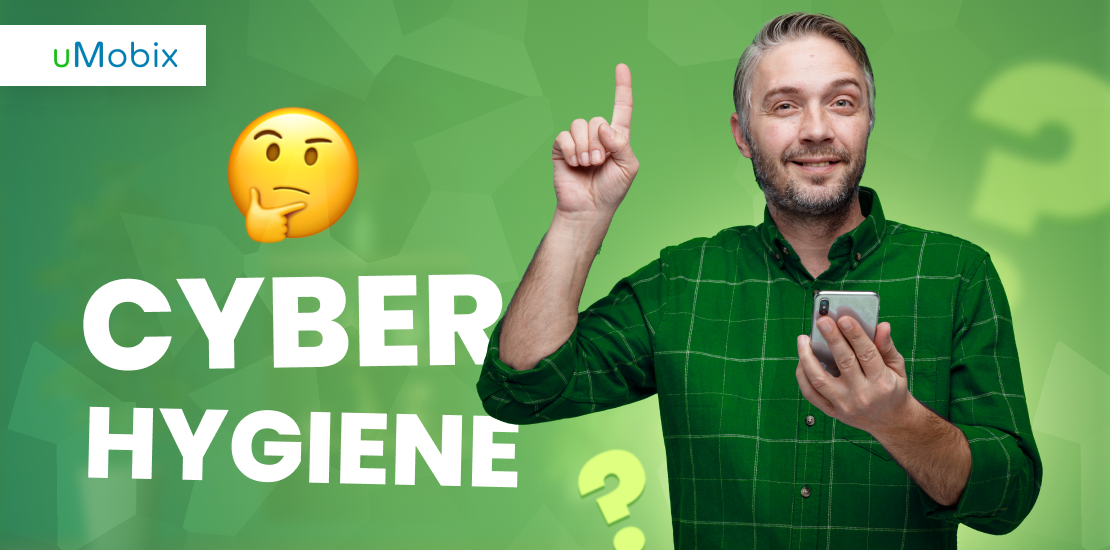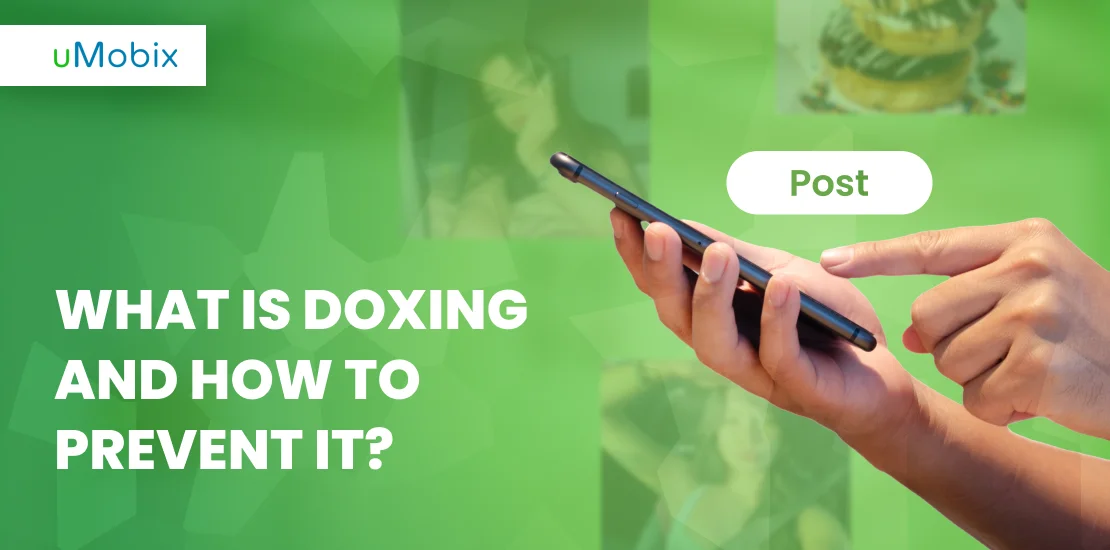Like personal hygiene, cyber hygiene is important, especially now that we shop, learn, and do a lot online. You’ll find out all about it!
Good Cyber Hygiene Habits to Help You Stay Online Safely
Cyber hygiene involves adopting certain habits that help protect your devices from hackers or attacks by a virus. Cyber hygiene habits include:
- Verify requests for personal information – verify the identity of anyone requesting your details or someone else’s information. Scammers/hackers are cunning in how they can steal personal information/identity.
Thus, even if someone you know is requesting such information, make sure it is for a genuine or agreed reason. Also, check your credit reports and bank statements regularly to identify any suspicious transactions.
- Be careful with attachments and links – hackers and scammers can use links and attachments on social platforms as bait. Think twice and take care when you come across links and open some attachments as they might be dangerous. Also, they might compromise your friends’ accounts or emails to send you attachments. Hence, confirm with them first if they have sent you such attachments.
- Protect your devices – ensure to lock up your things when in public or watch them closely. Lock the computer’s or any other device’s screen before leaving it, especially in a work environment. Carry portable devices like smartphones with you.
- Update your devices, applications, and browsers – automate software updates to ensure you use the latest versions for efficient working. Besides, you can restart devices to enable the complete installation of updates.
- Back up important data – ensure that you store your backup files in a separate location from their originals. Also, test such backup stores periodically.
- Destroy records that are no longer useful or needed – ensure that sensitive information that is no longer needed is destroyed or deleted. This will prevent access to the information by malicious people.
- Report suspicious activities and scams – report suspicious emails and any other scams to the respective authorities.
What Is Cyber Hygiene?
Cyber hygiene refers to the steps and practices that you take to stay safe online when using computers, phones, and other devices. It also refers to ways to maintain your system’s health. When these steps and practices are carried out routinely, they can ensure the safety of your data. Fraudsters and scammers might not steal your identity and other personal information.
Cyber security hygiene is crucial not only for you but also for an organization or company. It helps a company develop a routine that keeps its computers and sensitive information safe even when doing business online.
What Are the Benefits of Cyber Hygiene and Why Is It Important?
Following good cyber hygiene habits comes with benefits:
- Maintenance – It is beneficial for your devices as maintaining them improves efficiency. Also, businesses with a network of computers, mobile devices, applications, servers, virtual machines, databases, and more can benefit from maintenance. Proper maintenance might prevent loss of data, outdated services, and unpatched software.
- Security – Scammers and hackers usually take advantage of gaps in your computer security to obtain data or steal from you. With internet hygiene, you can prevent viruses, thieves, and other hackers from attacking your devices.
Therefore, cyber hygiene is important since it helps your devices run smoothly and efficiently. Also, it keeps your sensitive information safe from scammers or hackers.
Challenges of Maintaining Cyber Hygiene
The challenges of maintaining cyber hygiene are due to various entry points for scammers, hackers, or malicious software that can cause problems in your devices. These might include:
- Security breach – hackers, spam, scammers, viruses, and malicious software exist in the technology environment we operate. They are constant threats that make the maintenance of cyber hygiene challenging.
- Data loss – not backing your data regularly can leave it vulnerable to attacks by hackers and other malicious actors.
- Old security software – older security software is a challenge to security hygiene, especially in the ever-changing technology environment. Hence, old security software might not protect your data.
- Outdated software – out-of-date software can be vulnerable to attacks. Thus, ensure that you use updated applications across the business. Use the right tools for cyber hygiene.
Cyber hygiene tools work to safeguard your data. There are many tools for digital hygiene and security, but not all of them are up to the task. Therefore, it is vital to get the right tools for a healthy and safe network and information. Antivirus, network firewalls, password protections, and automation are some of the right tools for cyber hygiene. We will discuss these tools in the following section.
Cyber Hygiene Best Practices
Digital devices are vulnerable to various threats, including viruses, hackers, and malicious software. Fortunately, developing cybersecurity hygiene can be easy. You need to implement practices, including:
Ensure High-Quality Antivirus Protection
A high-quality antivirus is a crucial cyber security tool to keep you safe online. The good thing is that many antivirus software on the market can check for suspicious webpages, harmful files, and other harmful files. Typically, some can even block suspicious files even if you’ve downloaded them. Also, antivirus software is easy and simple to install. Depending on price and system usage, you’ll have a variety to choose from on the market.
Use Network Firewalls
A network firewall works to protect your devices from various malicious programs, such as worms and viruses. Typically, firewalls scan anything that enters your devices and detects harmful and safe ones. A firewall is a good cyber hygiene practice as it will isolate and delete harmful ones. Check the settings of your computer to find out if its firewall is on. Remember to install a firewall if your devices do not have one.
Update Apps, Software, and Firmware Regularly
Scrutinize each device and program in the list. The aim of analyzing your programs and devices is to find vulnerabilities. For instance, update outdated software and applications by installing new ones. For programs that you no longer use or do not use regularly, uninstall them. Do not install many applications or software for the same functions, and if you already have more than one, uninstall one.
Set Strong Passwords
Many people have simple passwords for their computers and phones. Also, people tend to use a single password for all their devices. It is a good idea to do so, as hackers can use that one password to access sensitive information. Therefore, set strong, long, and unique passwords for your devices.
Use different passwords for home and office devices. Also, as internet security basics, do not remember passwords on your devices. Change passwords and ensure that only authorized people access such passwords.
Use Multi-Factor Authentication
It is a security feature that allows two forms of authentication to access a device, application, or website. A login using a username and password is not sufficient, as you need a second independent form of authentication.
It will be hard for hackers to access your data as they need two different ways to access your system. Hence, even if someone steals your password, they still require another way of authentication.
Employ Device Encryption
Device encryption can protect your sensitive data when someone steals your computer or device. It ensures that your device’s security is intact and allows you (the owner) to access files when the computer is turned on, or someone logs into your account. Thus, hackers will not access your sensitive data or personal files as they need your password to access them.
Backup Data Regularly
Regular backup of data helps keep a copy of data to be recovered when the primary data fails. You can lose primary data through virus attacks, accidental deletion, data corruption, software failure, or hardware problems.
For these reasons, the cyber hygiene checklist includes backing up data to securely archive important information. You can store backup data in a different separate location in a flash disk, use I-cloud, or other means.
Keep Your Hard Drive Clean
Your computer is a valued piece of equipment as it stores data, processes it, and helps you communicate with others. For this reason, interruptions in a computer might affect your business or dealings with other people.
Your computer’s hard drive can fill up due to images, installed files, and photos. Unluckily, many people do delete items that are no longer needed, slowing down your devices. Therefore, hygiene habits should include cleaning hard drives. Utilize the work of cleaning software specialists, including CCleaner. Besides, wiping hard drives and other physical parts of the computer can help remove dust and allow free movement of air for efficient working.
Secure Your Router
Hackers might breach the security of your Wi-Fi, causing potential harm. Thus, secure your router to avoid hackers by:
- Placing the router in a central place.
- Creating a strong, unique Wi-Fi password and changing it regularly.
- Verifying connected computers and other devices.
- Using a VPN.
- Updating your router and other devices.
- Not allowing remote router access.
- Turning on Wi-Fi encryption and firewall.
Safeguard Your Close Ones with uMobix
uMobix is a parental control app for kids to keep tabs on how they use a smartphone. It is a phone tracker that allows parents to track calls, including incoming, missed, outgoing, and deleted calls.
Besides, it tracks messages and social media apps accessed by kids to help you know the type of content your children consume. Its GPS location tracker allows you to know the movement of your loved ones.
You can also access the microphone and camera of the phone allowing you to hear in real-time the kind of conversation your loved ones have. Therefore, you can use uMobix to safeguard your loved ones.
Final Words
Whether at a personal or business level, cyber hygiene is vital for everyone. It helps maintain and improve security to ensure that your files and sensitive information are free from viruses, attackers, and other malicious actors.
The good thing is that most cyber hygiene best practices are simple and easy to follow. For instance, creating unique, strong passwords, installing antivirus, and regularly updating the system.
FAQ
The use of network firewalls, strong passwords, device encryption, and secure router are some good cyber hygiene habits. Other internet habits include regular backing up of data, cleaning hard drives, and regular updating of applications and software.
It helps ensure that your devices are working well, as frequent checks, updates, and maintenance lead to efficiency. Besides, it ensures that your files, data, and sensitive information is safe from attack by viruses, hackers, and other harmful actors.
The first step in cyber hygiene is ensuring good habits. For instance, do not click on attachments and links that pop up. Also, verify any requests for personal information, update your system, and report suspicious activities.

Latest posts
- 10 Best Apps for Parents to Monitor Social Media: 2026 Guide
- Complete List of Keywords to Block for Parental Control
- Does Telegram Notify Screenshots? Everything About Screenshot Detection
- How to Find Someone’s Deleted Instagram Posts: Complete Guide
- Family Tracking App by uMobix: Keep Loved Ones Safe




